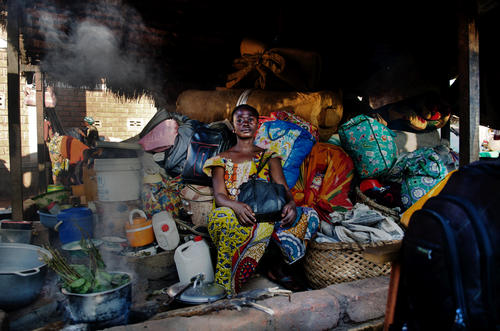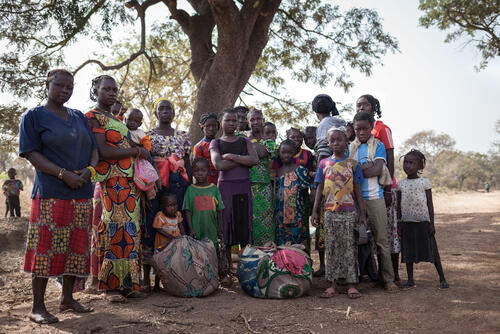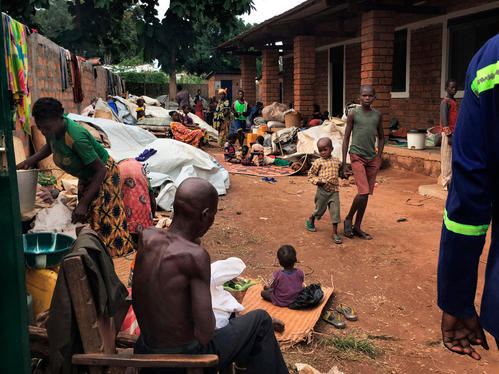The cycle of attacks and violence in 2017 has left neighbourhoods in Bria, in eastern Central African Republic (CAR), entrenched or emptied by their inhabitants.
Attacks of an extreme brutality have been directed against the Fulani community, for the most part Muslims, by various groups—some of them factions made up of Muslim fighters.
In May, Christian neighbourhoods were particularly targeted, resulting in over 40,000 people leaving the area populated by about 47,000 people.
The newly displaced went to the precarious PK3 refugee camp, on the outskirts of the town. That is also where most anti-Balaka and so-called self-defence militias are based. They attack any fighters and civilians who they consider to be “foreigners”, Muslims, Arabs or Fulani, but some have also forged alliances of convenience with ex-Seleka factions, their former enemy. Clashes are frequent between these factions.
The dividing lines, now deeply marking the geography of the town, deal with identity and various other issues, which cannot be reduced to a conflict of opposing Christians and Muslims.
Bria is divided into zones held by rival armed groups, forging volatile alliances. Reprisals and acts of revenge are an everyday reality for the population. In this context, any attempt by a family with a sick child, or someone wounded to leave their neighbourhood and reach the hospital puts their lives in immediate danger.
Despite the short distance to seek medical care, moving around the city amounts to crossing frontlines and being exposed to attack, robbery, being beaten up or killed based on perceived complicity with one or other side.
A difficult journey to access medical care
Médecins Sans Frontières (MSF) set up mobile clinics in various strategic locations, such as the Fulani enclave in Gobolo, Borno neighbourhood and PK3, the camp where mostly Christian displaced people live. The clinics enable access to healthcare for children under 15 years old and injured people, and manage referrals to the hospital when needed.
Once admitted at the hospital, the medical journey is not over for the most severe cases, which have to be referred to the MSF surgical programme in Bangui. Many hurdles are faced by the teams in providing urgent medical care, including threats against MSF staff who manage the referrals.
“Our work consists in providing free medical care to those who need it, regardless of their origins, beliefs, political affiliations and the reason they are sick or injured”, said Anne-Marie Boyeldieu, MSF Head of mission in December 2017. “It is a medical duty enshrined in international humanitarian law. We cannot fulfil it if our team is under threat.”
Medical workers often under threat
In December, armed men in Bria stopped an MSF ambulance, pointing guns at the vehicle to oppose the referral of an injured patient to the hospital. The incident was eventually resolved without further violence but the patient could not reach the hospital.
In the powder keg of Bria, the population paid a heavy price for the violence in 2017, and medical staff were not spared.
In September, more than 30 MSF staff forced to flee their neighbourhood found shelter for weeks in Bria hospital, again trapped by the conflict.
“We’re stuck in the hospital, like prisoners. We have to sleep in our office,” said Armel Zengbe, MSF’s nursing supervisor at the hospital.
Every morning, an MSF vehicle used to go to pick up other staff members who sought refuge in PK3 camp and were unable to reach the nearby hospital themselves without risking their lives.





